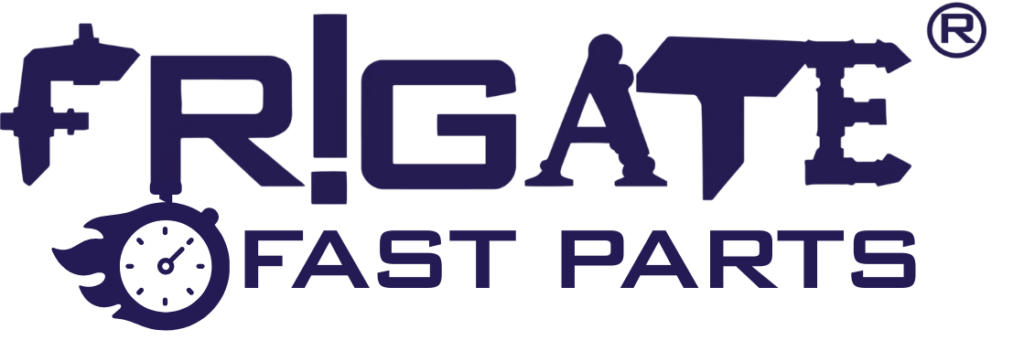CNC Milling Services for Food Processing Machinery
Frigate offers CNC milling services for food processing machinery needing high-accuracy components built for hygiene and durability. Our teams deliver complex, milled parts with precise geometry from stainless steel, supporting food-grade standards.
Our Clients



































- Production Reliability
Advantages of Our CNC Milling Services
Our approach combines advanced workholding, optimized toolpaths, and coolant control to improve reliability during high-volume food-grade milling.
Hygienic Surface Contouring
Using radial milling with adaptive clearing allows smooth internal contours for easy cleaning and fluid movement.
Multi-Side Machining for Housing Blocks
Multi-axis milling machines complete housing parts on all sides in one setup, reducing handling and misalignment.
Stable Pocket Milling
Step-over control and cutter engagement modeling prevent chatter during deep cavity milling for frames and enclosures.
- Milling Sequence Control
Our CNC Milling Process
Toolpath simulations and feed control help manage burrs and improve surface finish on stainless components.

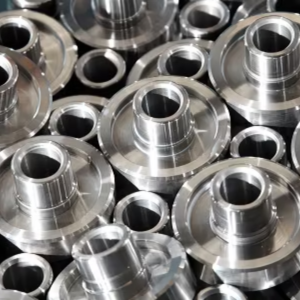
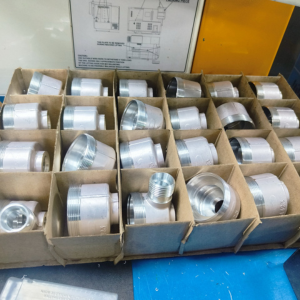
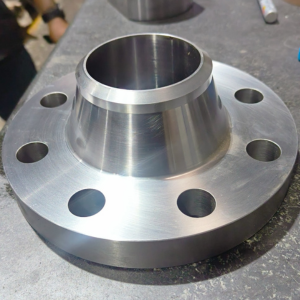

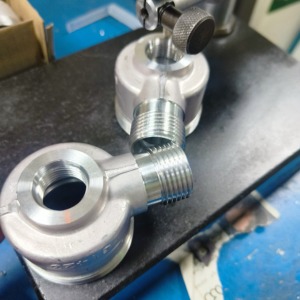
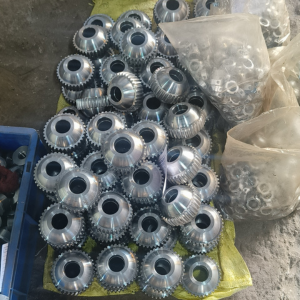
Engineers design the part using CAD (Computer-Aided Design) software. The design includes all dimensions and specifications.
The CAD design is converted into CNC code, often using CAM (Computer-Aided Manufacturing) software. This code tells the milling machine how to move and cut the material.
Operators prepare the CNC milling machine by securing the material (workpiece) and installing the appropriate cutting tools.
The CNC machine reads the code and starts milling. The cutting tool rotates and moves along multiple axes to remove material from the workpiece and shape it into the desired part.
The machine monitors the cutting operations throughout the process. Operators may make adjustments to ensure precision and quality.
After milling, the part may undergo additional processes like deburring or polishing to achieve the final specifications.
The finished part is thoroughly inspected to meet all design requirements and tolerances.
- Real Impact
Words from Clients
See how global OEMs and sourcing heads describe their experience with our scalable execution.
“Quick turnaround and solid quality.”
“The instant quote tool saved us time, and the parts were spot-on. Highly recommend Frigate!”
“Great service, fair price, and the parts worked perfectly in our assembly.”
“Top-notch machining and fast shipping. Very satisfied with the results.”
“Frigate delivered high-quality parts at a competitive price. The instant quote tool is a huge plus for us!”
“We appreciate the precision and quality of the machined components in the recent delivery—they meet our specifications perfectly and demonstrate Frigate’s capability for excellent workmanship.”
“Flawless execution from quote to delivery.”
“The precision on these parts is impressive, and they arrived ahead of schedule. Frigate’s process really stands out!”
“Parts were exactly as spec’d, and the instant quote made budgeting a breeze.”
“Good value for the money.”
“The finish was perfect, and the team was easy to work with.”
- Surface Integrity
Precision Surface Finish for Food-Grade Parts
Polishing sequences and passivation support smooth surfaces that resist buildup and meet sanitation requirements.
Anodizing
Give your aluminum parts a tough, corrosion-resistant shield with anodizing, reaching surface hardness up to HV 500, while enhancing electrical insulation and durability.
Mechanical Finishing
Smooth out imperfections and refine surfaces to Ra 0.2 µm or better with mechanical finishing techniques like grinding, polishing, and bead blasting.
Heat Treatment
Boost material strength and hardness by heat treating parts at temperatures up to 1100°C, ensuring they meet the mechanical demands of your application.
Electroplating
Add protective or functional metal coatings with electroplating, delivering consistent layers as precise as ±2 µm for improved corrosion resistance and conductivity.
Our Machined Products
We support your production needs with CNC-machined parts, subassemblies, and performance-critical components.
- Material Capability
CNC Milling Materials
We mill stainless steel and aluminum, based on hygiene, strength, and wear requirements. Each material serves specific uses in conveyors, enclosures, or nozzles.
- Speed up design validation through traceable material documentation and test certificates.
- Get precise material pairing based on part geometry, usage zone, and hygiene class.
- Avoid sourcing delays with early-stage stock confirmation and mill certifications.
A2 Tool Steel is a high-carbon, high-chromium steel known for its toughness and wear resistance. It’s ideal for producing durable, high-strength parts that can withstand heavy use.
Aluminum is a lightweight, corrosion-resistant metal with good machinability. Because of its strength-to-weight ratio, it’s commonly used in aerospace, automotive, and various industrial applications.
Brass is a copper-zinc alloy known for its machinability and corrosion resistance. It’s used for components requiring precise detailing and good mechanical properties.
Bronze is a copper-tin alloy with excellent wear resistance and strength. It’s often used for bushings, bearings, and other friction-prone components.
Cast Iron is known for its high wear resistance and machinability. It’s used in heavy-duty applications such as machinery parts and engine components.
Copper offers excellent thermal and electrical conductivity. It’s used in applications requiring heat dissipation or electrical conductivity, such as electronic components.
Steel is a versatile material known for its strength and durability. It’s used in various applications, from construction to automotive parts.
Titanium is a lightweight, high-strength metal with excellent corrosion resistance. It’s used in aerospace, medical implants, and high-performance engineering applications.
Stainless Steel offers high corrosion resistance and strength. It’s widely used in applications ranging from kitchen equipment to industrial machinery.
Zinc is a ductile and corrosion-resistant metal known for its excellent machinability, especially in its alloy forms. It's often used for components requiring intricate details, good surface finish, and precise dimensions, commonly found in automotive, hardware, and electrical applications.
- Production Consistency
Key Highlights
Our methodical workflows prevent contamination and ensure fitment accuracy across every batch. Repeatability improves equipment performance in food plants.
- Achieve better cleanliness with sealed fixture setups
- Control variation using in-process inspection
- Meet USDA and EHEDG cleanliness guidelines
- Maintain traceability with part-level marking
- Reduce wait times with batch-synced deliveries

- Regulatory Compliance
Compliance for CNC Milling Services
Frigate follows all food-safety and machining standards required in this sector. Our programs cover process validation, lot traceability, and equipment sanitation. This allows manufacturers to meet end-customer audits with ease.
- Improve audit scores with clean machining documentation
- Ensure compliance with application-specific material grades
- Reduce downtime from rejected parts
Supports a quality-first system to control part accuracy and production flow.
Includes stricter protocols that aid in machining safety-critical parts.
Eliminates restricted substances from contact surfaces.
Verifies conformity with food safety and machine safety rules in EU markets.
Used where food-grade components need aerospace-grade tolerances.
Supports continuous quality improvement for parts integrated into food machinery lines.
Ensures milled components meet fire and electric safety when required.
- We export to 12+ countries
Frigate’s Global Presence
Frigate takes pride in facilitating “Make in India for the globe“. As our global network of Frigaters provides virtually limitless capacity, and through our IoT enabled platform your parts go directly into production. By digitally and technologically enabling “the silent pillars of the economy” MSME and SME manufacturing industries, we are able to tap the huge potential for manufacturing to bring the best results for our clients.

100,000+
Parts Manufactured
250+
Frigaters
2000+
Machines
450+
Materials
25+
Manufacturing Process

- Precision Validation
Quality Testing Standards for CNC Milling Services
To measure the roundness of cylindrical features, ensuring they meet tolerance requirements.
To check internal surfaces for flatness, critical for sealing and assembly purposes.
To identify burrs or sharp edges that may affect assembly or safety.
To ensure that complex profiles (e.g., contours, curves) conform to design specifications.
To check the topography and texture of the surface, ensuring it meets the required specifications for function or aesthetics.
To verify that the surface hardness depth meets the required specifications for wear resistance.
To measure internal stresses that could lead to deformation or failure during or after machining.
To verify grain structure, inclusions, and material consistency, ensuring the part meets performance requirements.
- Milled Product Showcase
CNC Machined Parts
We apply high-feed milling and rigid setups to hold tolerances under 15 microns across stainless batches. Explore how our work supports real food machinery use cases.
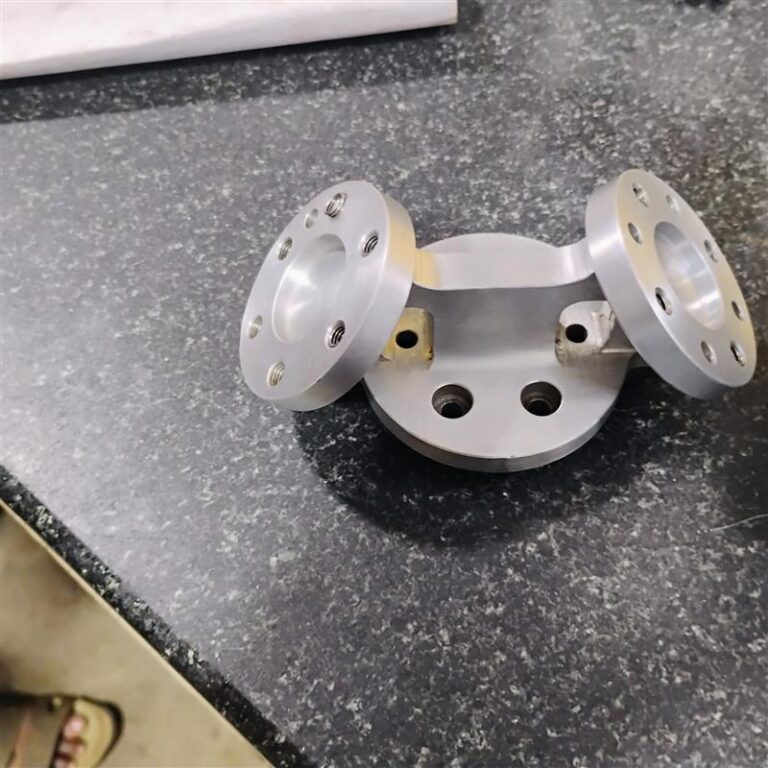
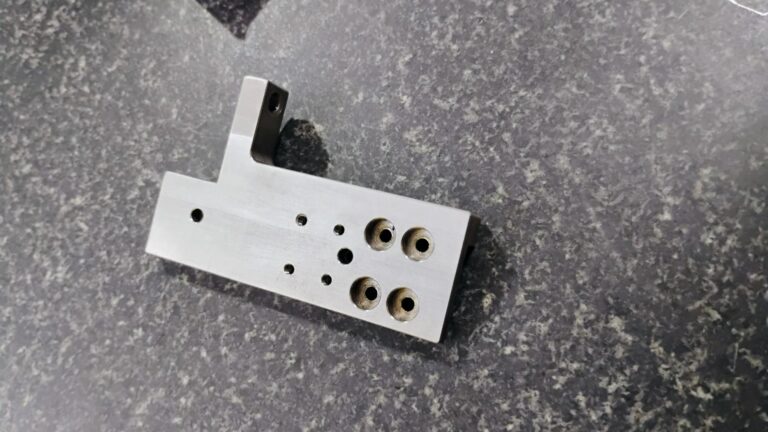
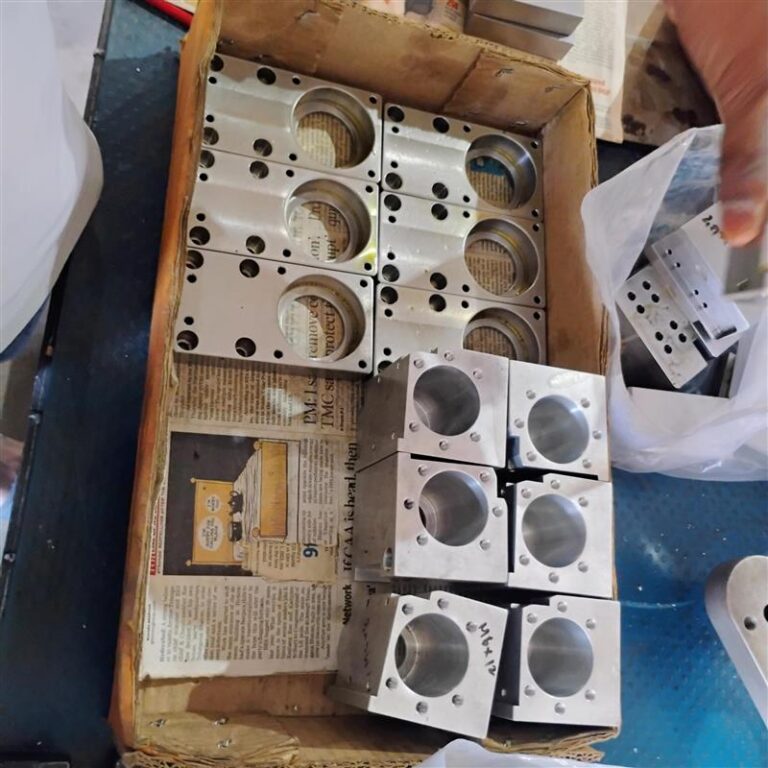
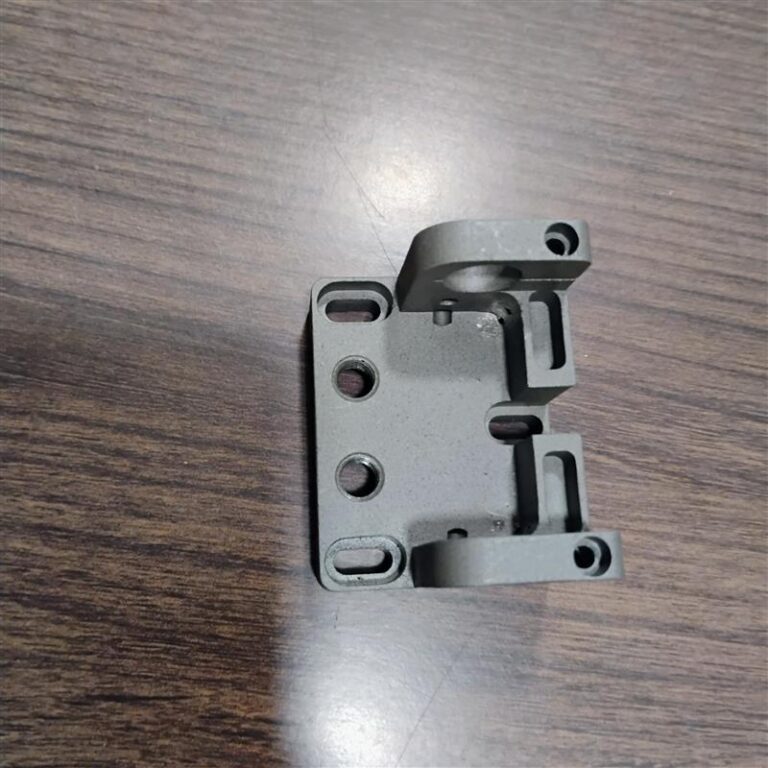
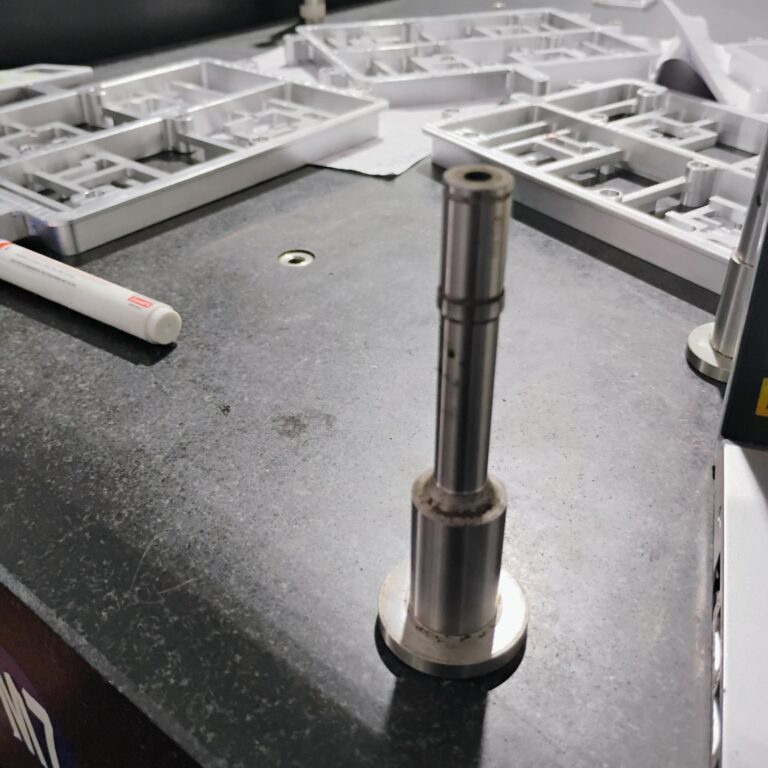
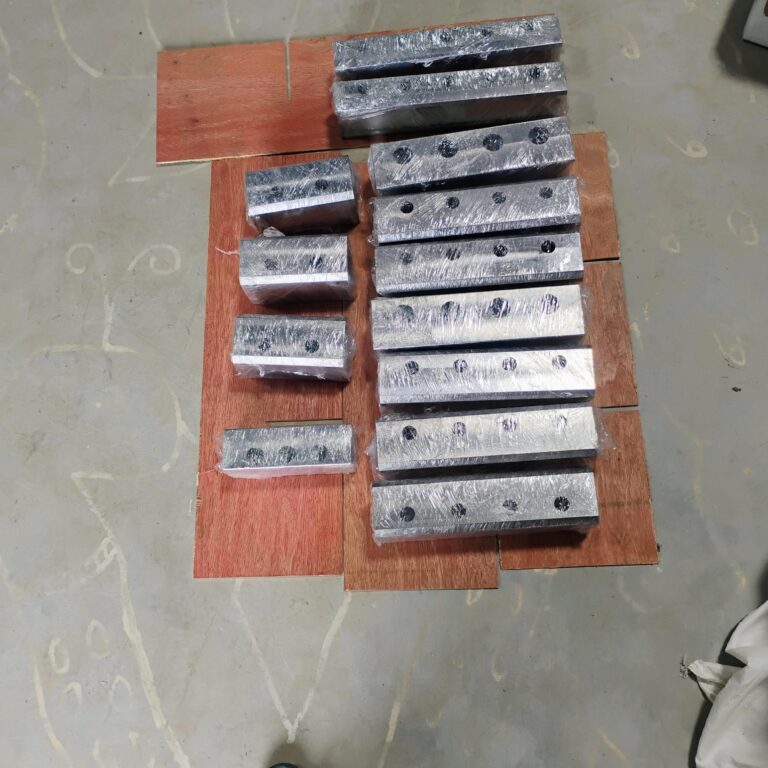


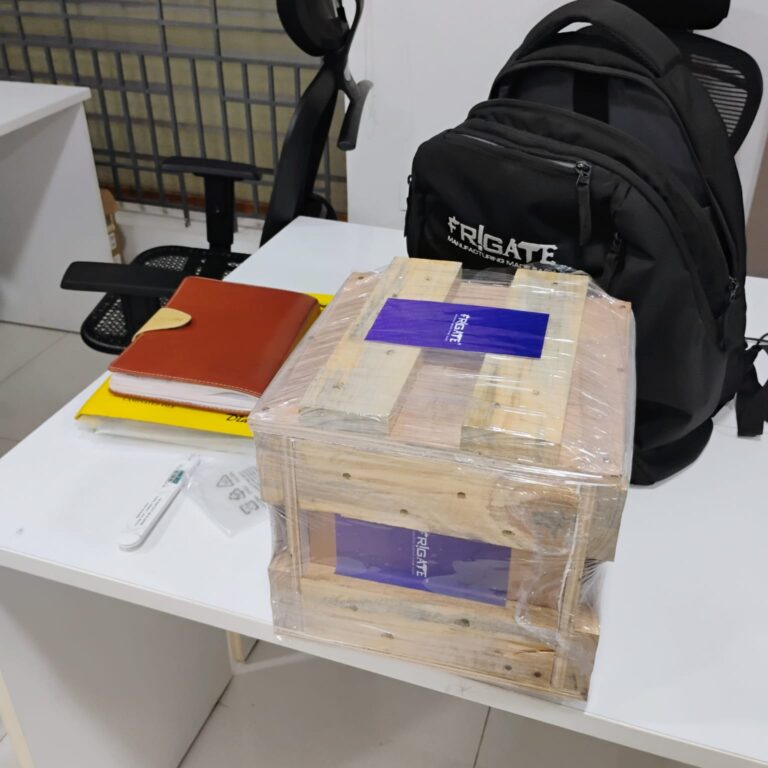



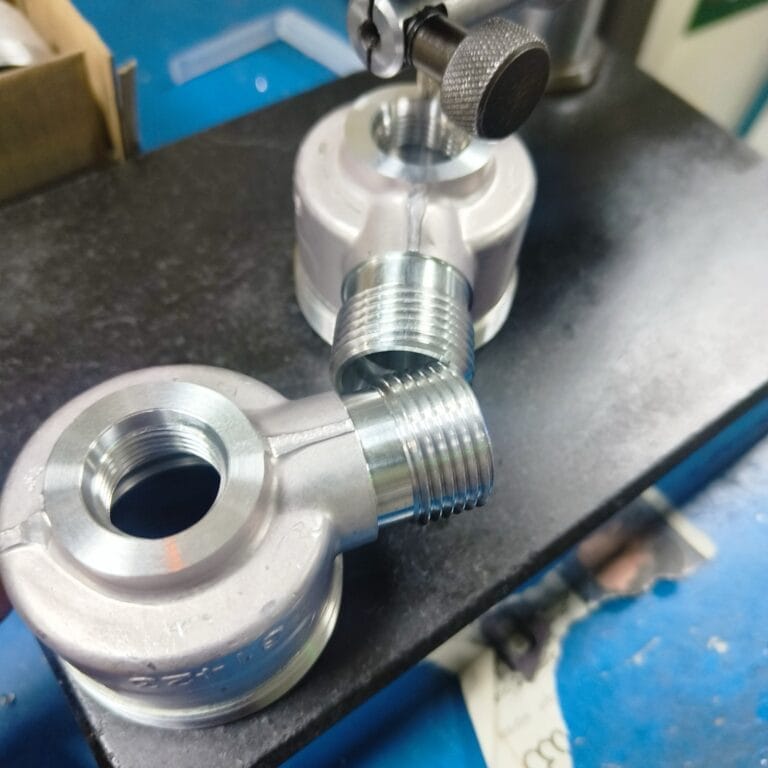
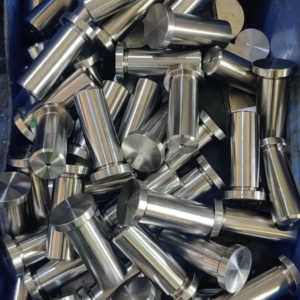
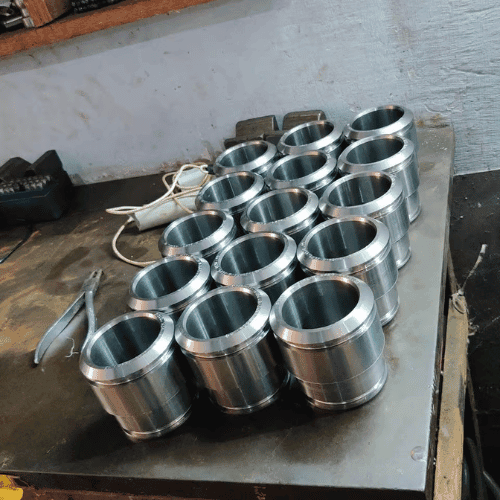
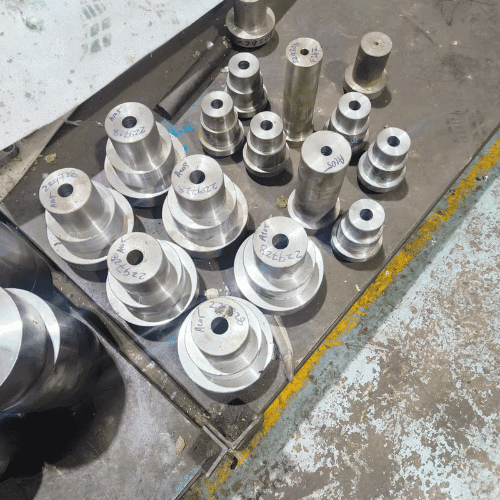
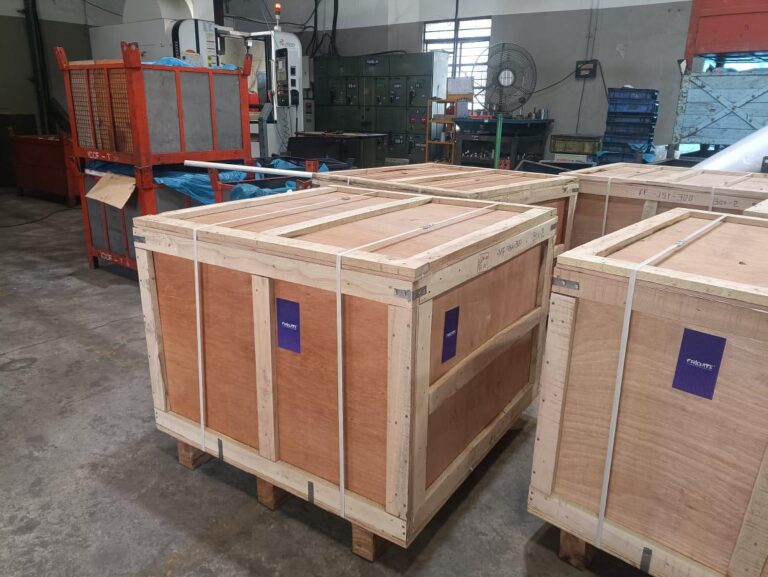
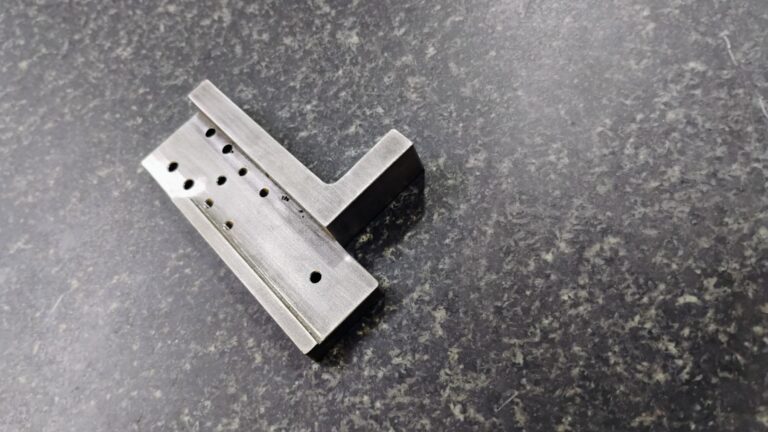
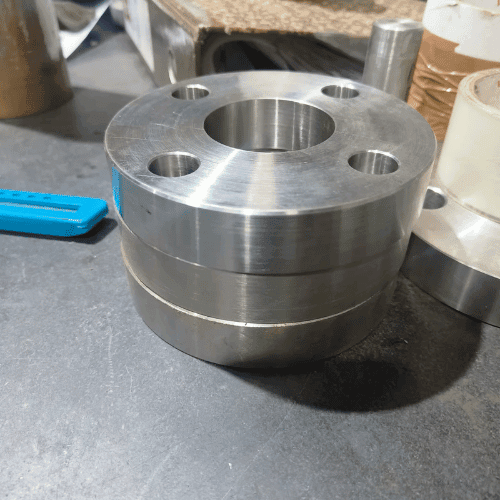
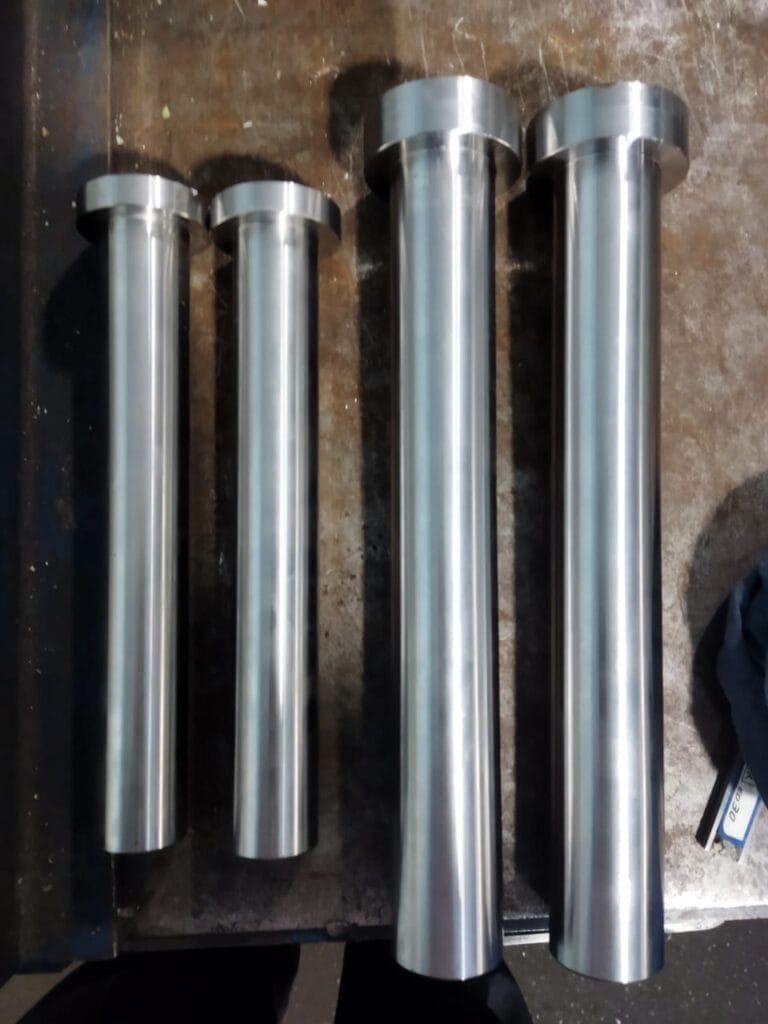

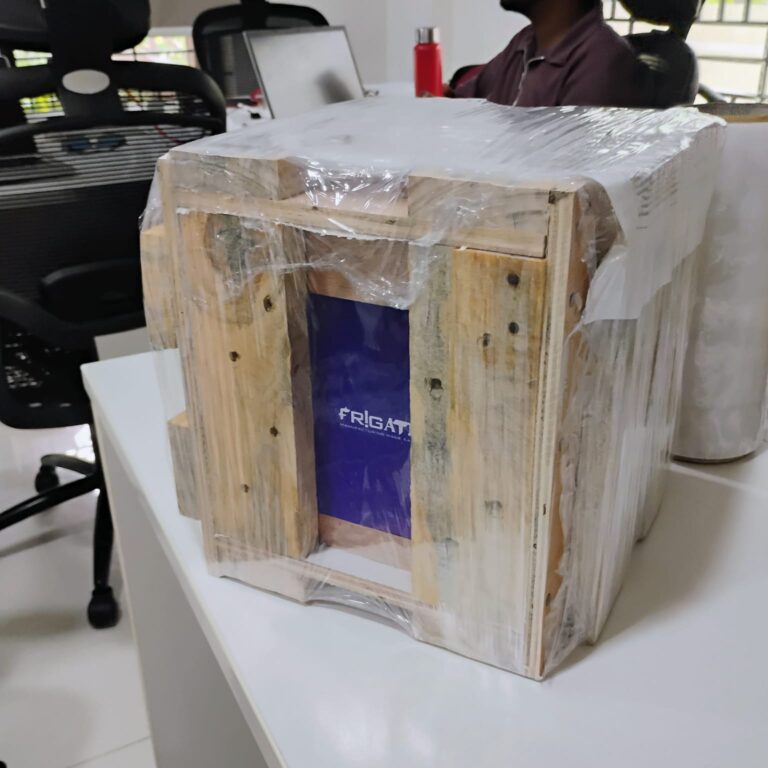

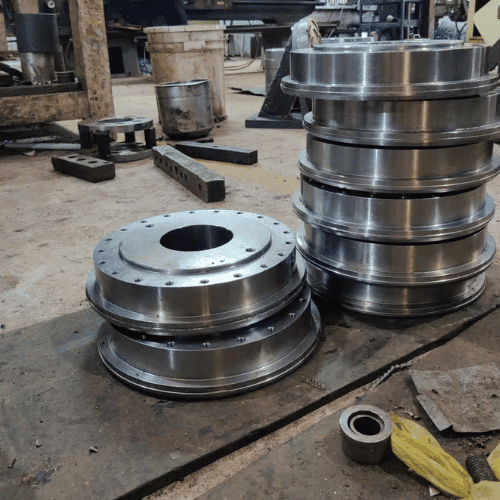
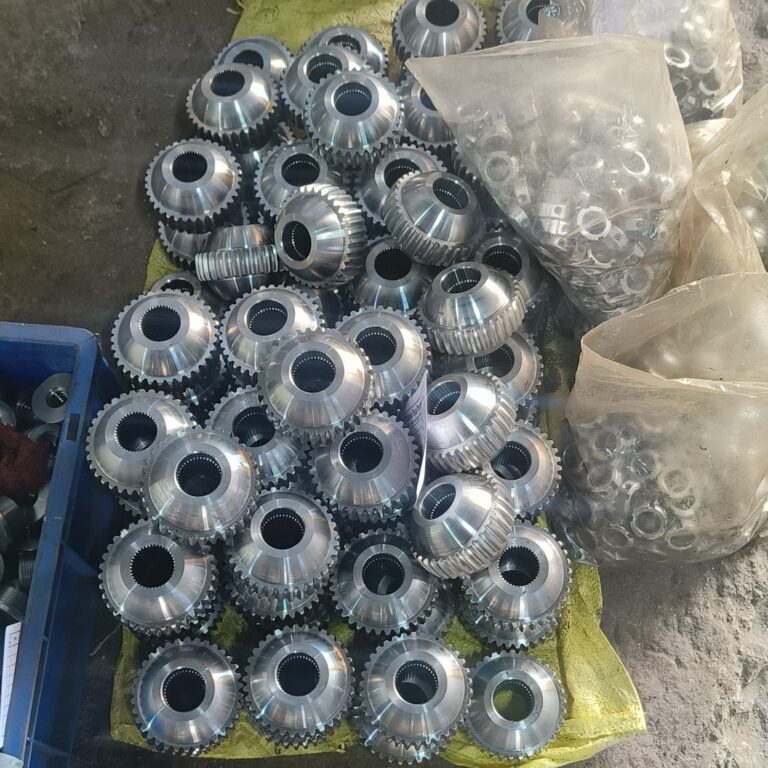
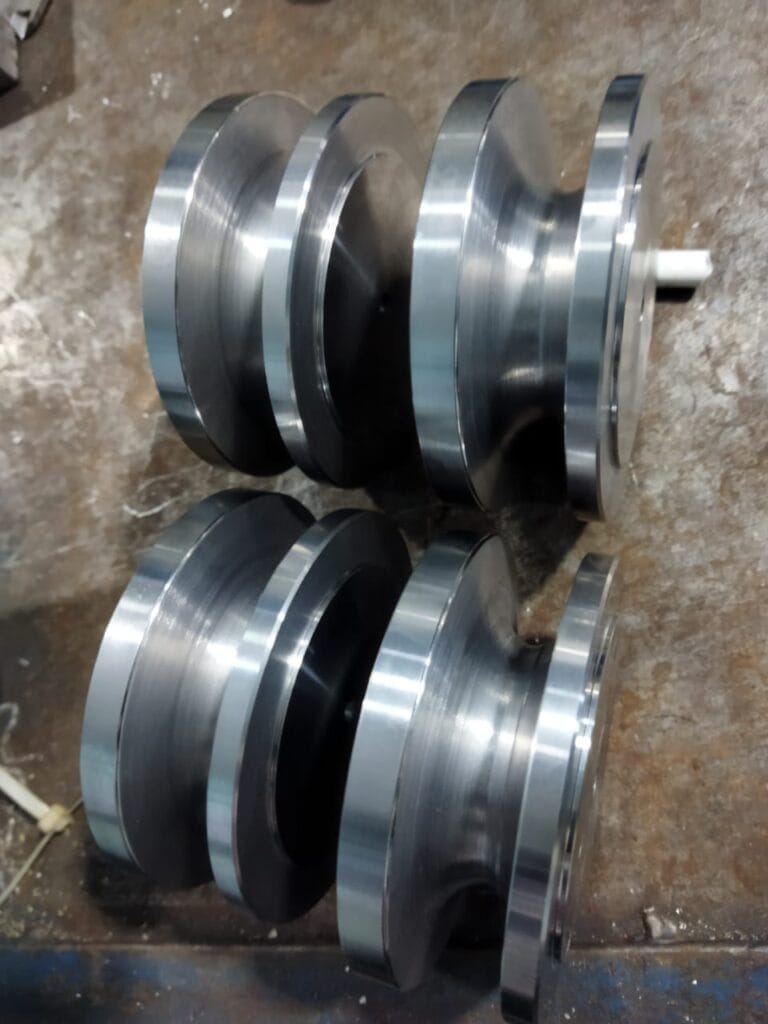
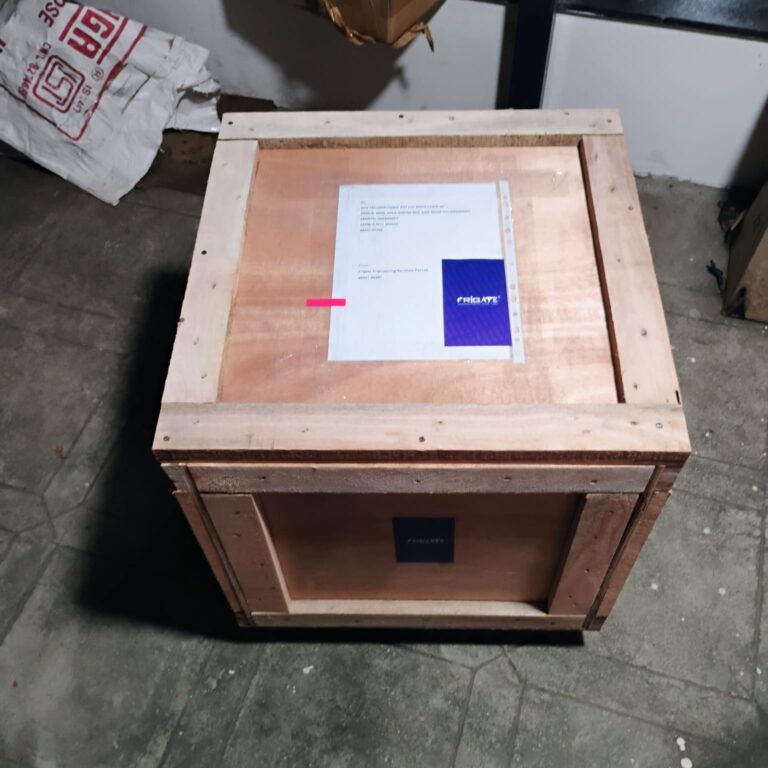
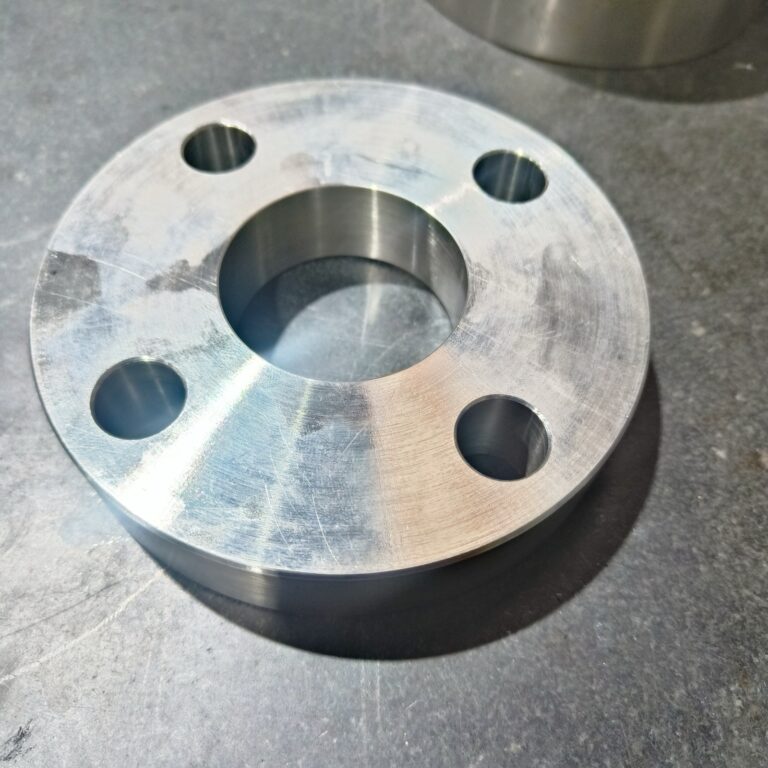
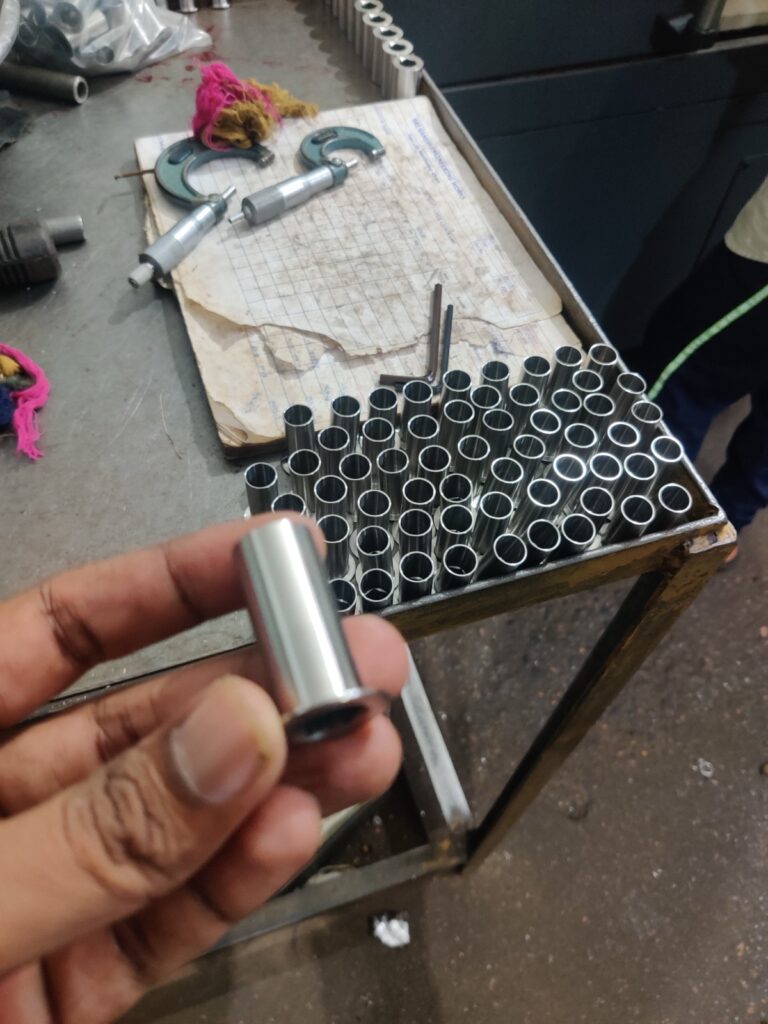
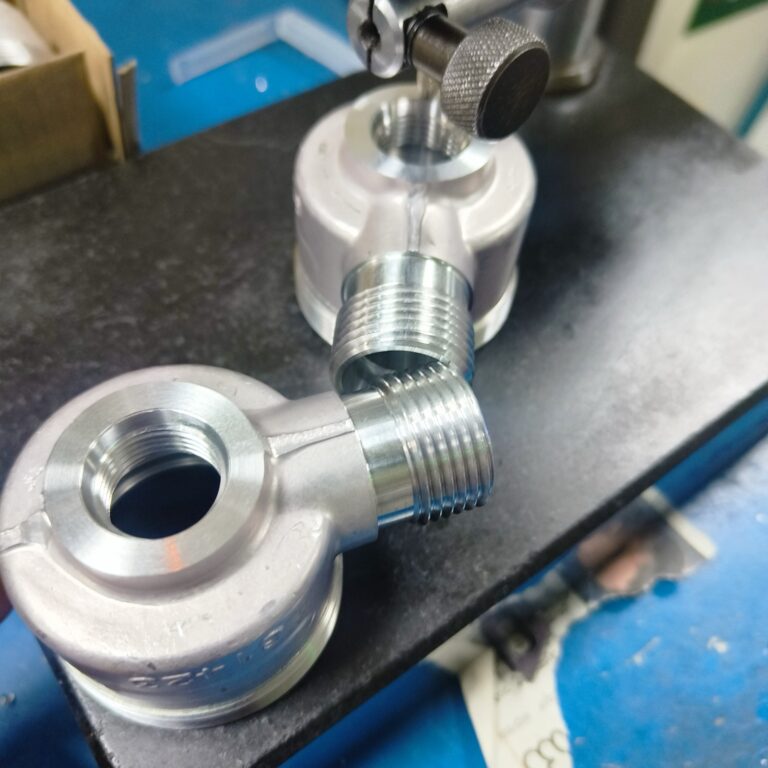
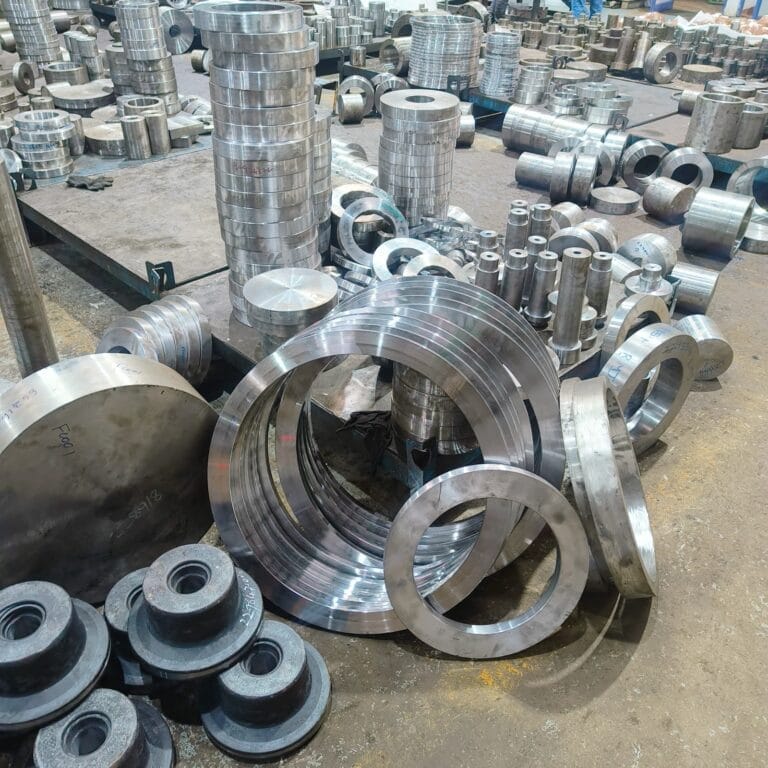
Other Industries We Serve
We deliver machining support across sectors that require consistency, material reliability, and tight dimensional control.
- Solid Progress
Our Manufacturing Metrics
Frigate brings stability, control, and predictable performance to your sourcing operations through a structured multi-vendor system.
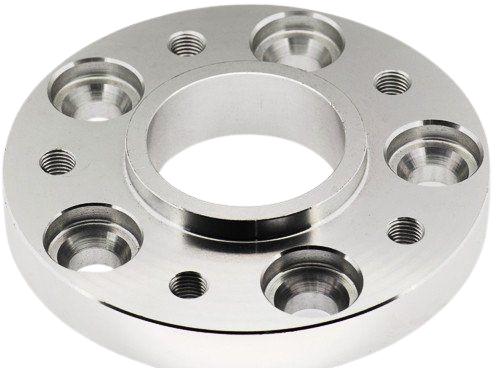
2.8X
Sourcing Cycle Speed
Frigate’s pre-qualified network shortens decision time between RFQ and PO placement.
94%
On-Time Delivery Rate
Structured planning windows and logistics-linked schedules improve project-level delivery reliability.
4X
Multi-Part Consolidation
We enable part family batching across suppliers to reduce fragmentation.
22%
Quality Rejection Rate
Multi-level quality checks and fixed inspection plans lower non-conformities.
30%
Procurement Costs
Optimized supplier negotiations and bulk order strategies reduce your overall sourcing expenses.
20%
Manual Processing Time
Automation of sourcing and supplier management significantly reduces time spent on manual tasks.
Get Clarity with Our Manufacturing Insights
- FAQ
Having Doubts? Our FAQ
Check all our Frequently Asked Questions in CNC Milling
Frigate applies fine-step milling using coated carbide tools to minimize tool marks and scratches on food-contact surfaces. We follow up with sequential polishing and surface passivation to reduce microbial retention. Coolant systems use food-grade, non-reactive fluids to avoid residue contamination. Additionally, toolpaths are optimized to reduce dwell marks around hole entries and cavity transitions. Every part is tested for Ra values to ensure it meets food industry thresholds. Visual and tactile inspection helps catch surface issues that could affect cleanability. These methods help us support CIP (clean-in-place) and sanitation requirements effectively.
We use thermally stable fixturing combined with adaptive tool compensation to control dimensional accuracy during long stainless runs. Multi-pass roughing and rest machining prevent localized heating that may lead to expansion. Tool wear is tracked using preset counters and flagged before tolerances drift. We also deploy probing systems to re-zero key features mid-process. All parts are validated using calibrated micrometers and CMM checks after every lot. These steps help maintain precision across production batches used in enclosures, chutes, and structural frames.
We use sharp-edged cutters and regulate chip load to reduce mechanical tearing at tool exit. Entry and exit points are planned along secondary faces to prevent raised edges on mating surfaces. Multi-axis tool angles are programmed to approach from deburring-friendly vectors. We apply air blasts and vacuum extraction to keep chips from embedding in milled cavities. Post-process deburring is done with non-metallic brushes to avoid cross-contamination. These combined techniques help us deliver clean, burr-free parts that need no additional cleaning at assembly.
We use vacuum chucks and custom soft jaws to secure thin sheets and hollow parts without distortion. Down-cut milling and reduced axial loads minimize part movement during finishing passes. Clamping pressure is distributed evenly using rubber-faced supports or polymer dampers. Vibrational damping systems are added for parts longer than 300 mm. Toolpath overlap is controlled to avoid chatter at edges and corners. These methods help us maintain geometry on delicate stainless and aluminum profiles used in hoppers, guides, and filler units.
We track every material batch with MTCs and food-contact certifications. Tools, coolants, and fixturing elements are selected to meet FDA, EHEDG, or EU 10/2011 standards based on the target market. Cleanroom-level housekeeping is followed in work cells assigned to food equipment orders. All surfaces are handled using gloves, and no part leaves the cell without an approved inspection tag. Final part release includes Ra reports, visual checklists, and traceability charts. These protocols support global compliance and reduce risk in regulatory audits.
We'd love to Manufacture for you!
Submit the form below and our representative will be in touch shortly.
LOCATIONS
Registered Office
10-A, First Floor, V.V Complex, Prakash Nagar, Thiruverumbur, Trichy-620013, Tamil Nadu, India.
Operations Office
9/1, Poonthottam Nagar, Ramanandha Nagar, Saravanampatti, Coimbatore-641035, Tamil Nadu, India. ㅤ
Other Locations
- Bhilai
- Chennai
- USA
- Germany
